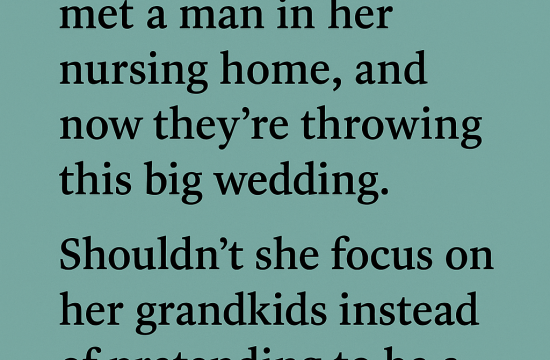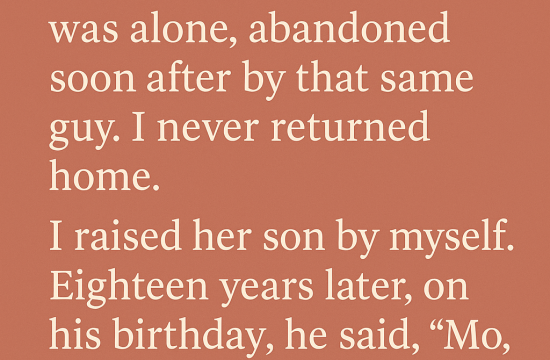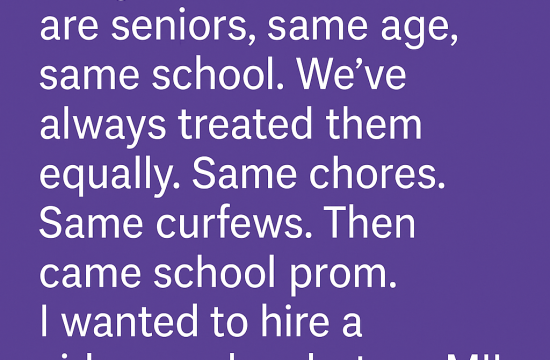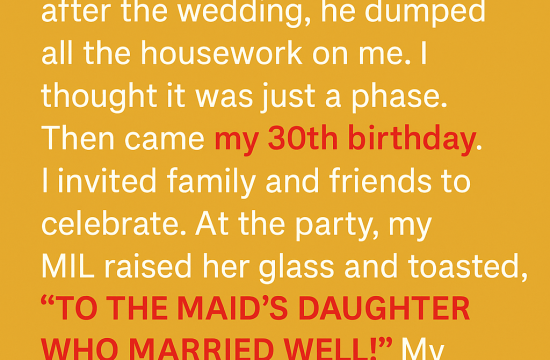From a young age, we’re taught that our parents sacrificed so much for us — that giving back is not just kind, it’s expected. And for many, that sense of duty feels right, especially once we’re financially secure.
But what if that giving starts to feel less like love and more like obligation? What if the support we offer is no longer seen as a gift, but as a duty — quietly assumed, even demanded?
One man believed he was honoring his parents — until a single moment with his mother shattered that belief and forced him to see things in a whole new light.
Here’s his letter to our editorial.
Hi,
I’ve always given a part of my salary to my parents. It wasn’t a formal agreement, just something I did — out of love, respect, and yes, a sense of duty.
After our first child was born, everything changed. Our expenses soared — diapers, formula, medical bills, and daycare. So I sat down with my parents and told them gently, “Money’s tight right now. You’ll need to take care of yourselves for a while.”
They both said they understood.
But the next day, my mother showed up unannounced. When I walked into the room, I found my wife in tears.
“She said she’s going on a summer trip with her friends,” my wife whispered. “She already bought the tickets and says she’ll lose everything if we don’t help her out.”
I was stunned. Not only by the timing, but by the pressure. Still, I sent a small, one-time amount to help cover her cancellation fees. I did it not because I wanted to — but to keep the peace.
She never thanked me.
Instead, she went online and posted a vague but pointed message:
“Some people forget who raised them the moment they start their own family. Shame.”
I didn’t respond. I couldn’t.
A few days later, my dad called. “She’s not talking to anyone,” he said quietly. “You broke her heart.”
That’s when it hit me.
All those years I thought I was giving out of love — maybe they weren’t receiving it that way. Maybe it had become an expectation. A habit. A lifeline they thought would never end.
I love my parents. I always will. But I have a wife now. A son. A family of my own.
And I’ve learned that putting them first doesn’t make me selfish.
It makes me a husband.
It makes me a father.
It makes me…an adult.
Editor’s Note:
What you’re experiencing is something many adults quietly face — the emotional tug-of-war between honoring your parents and protecting your growing family. And you’re not alone.
Here are a few gentle but firm ways to navigate this difficult shift:
-
Be clear with your wife that she comes first.
Tell her plainly: “You and our child are my priority.” That affirmation goes a long way in building trust. -
Speak calmly but directly with your mom.
Try: “We’re adjusting to new responsibilities. I’m still here emotionally, but we can’t offer financial support right now.” -
Use your dad as a bridge if possible.
He may be more receptive and can help translate your decisions with empathy. -
Avoid giving money “just to keep the peace.”
This rewards guilt-based behavior. Instead, say: “That was a one-time help. We can’t continue regular support.” -
Protect your mental space.
If your mom’s posts are emotionally draining, mute her on social media. Focus on real conversations, not online jabs. -
Offer non-monetary gestures.
A photo of your child, a heartfelt note, or a weekly call can go a long way to show love without money. -
Don’t doubt yourself.
You’re not failing — you’re growing. You can still be a loving son without being a financial crutch.
Sometimes, the hardest part of adulthood is realizing that love and boundaries must coexist. You are not failing your parents by prioritizing your own family — you are fulfilling the role they once filled for you.
And that’s not selfish. That’s strength.











